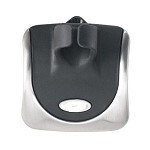Once you get out of the hospital after a stroke, there are a number of typical longer term problems that you may experience. Some of the more common issues include:
- Cognitive Problems – It is believed for most stroke survivors that there is some cognitive loss, including memory, attention, perception and communication. For example, after a stroke, you may have short term memory problems. Or, you might have problems choosing what requires your attention and what does not. It can be easy to be distracted. You may have problems filtering out background noise.
Solutions – Consult with an occupational therapist, and also talk to people about what you are going through. Also, meet new people who are dealing with similar issues as you. There are many support groups for stroke survivors.
- Communication Problems – If your stroke damaged the part of the brain that handles language, you may have trouble communicating. Stroke also may cause some communication problems if it affected muscles in your face, tongue and throat. Note that about 1/3 of stroke survivors have trouble speaking or understanding others, so you are not alone. Common communication-related problems include aphasia – affecting how you speak or to understand what is being said; dysarthria – weak muscles that you use to speak, causing a change in how you talk; and dyspraxia – when you can’t move muscles in the right order to make the sounds to speak
Solutions – Get a full assessment of your communication problems from a speech and language therapist. She will establish your needs and priorities for communicating better. Your progress will be closely monitored, and you will get plenty of support.
- Depression – About 50% of stroke survivors have depression after their stroke. This can happen right after the stroke, or several months later. This problem can be mild or severe. It can last a few weeks or a year or more. You might find that you feel blue or sad; you lose interest in activities you enjoy; or you find it hard to concentrate or make decisions.
Solutions – You should speak to your doctor right away. The sooner you get medical help, the better you will feel. The best treatment is counseling, combined with anti-depressant therapy.
Dining Aids After Stroke
The EZ Vegetable Peeler allows you to peel veggies with one hand.
One thing that can help you deal with some of these post-stroke problems is helpful stroke products. They help you to maintain your quality of life, as well as your independence. For instance, cooking supplies made for stroke patients can really help you to keep cooking on your own. The EZ Peel Vegetable Peeler makes it easy to peel vegetables with one hand. Or, the Swedish Cutting Board will not slip on the counter as you chop with one hand. It also features a vise and clamp-like device that will hold the fruit or vegetable in place.


